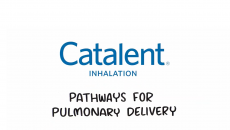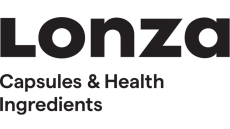Novartis seeks to patch up Alzheimer's drug delivery
receiving Novartis's Exelon as a transdermal patch instead of a
capsule following an international clinical study which showed that
the new delivery method reduces side effects without compromising
on efficacy.
The six-month trial of 1,195 patients in 21 countries demonstrated that the once-daily Exelon patch provided benefits across a range of symptoms and that the target dose was well tolerated, with over 70 per cent of caregivers preferring patches to capsules due to better compliance and less interference with daily lives.
Affecting approximately 15m people worldwide, Alzheimer's disease is the most common form of dementia and the third leading cause of death in people over 65 behind cardiovascular disease and cancer.
Alzheimer's medicines grossed $2.16bn (€1.68bn) last year according to IMS Health, and since there is a widely held view that these drugs do little to recover the mental functioning of patients, Novartis is focusing on the delivery method to lift its market share, after Pfizer launched in 2004 a new version of its Alzheimer's pill Aricept that dissolves in the mouth, also designed to make administration easier.
"Although Alzheimer's disease treatments have been available in oral forms for some time, we believe a patch may offer unique advantages for patients with this condition," said James Shannon, global head of development at Novartis.
"If approved, the Exelon Patch could potentially improve therapy compliance and help patients and their caregivers in reaching a better quality of life."
In the drugmaker's study, patients received Exelon either in capsules (6mg twice-daily) or patches in two sizes, namely Patch 10 (providing 9.5mg over 24 hours) or Patch 20 (17.4mg over 24 hours)
Both patch sizes showed superior efficacy to placebo, achieving improvements in memory and maintenance of some everyday activities.
When compared to the solid dosage, the target dose of Patch 10 showed similar efficacy to the highest doses of Exelon capsules with three times fewer reports of nausea and vomiting, which are well-known side effects of cholinesterase inhibitors.
Moreover, Patch 20 showed numerically but not statistically improved cognitive scores versus capsules and similar tolerability to capsules.
Local skin tolerability was good and the patch also demonstrated very good skin adhesion over 24 hours in a range of everyday situations such as bathing and in hot weather.
Exelon belongs to a class of drugs known as cholinesterase inhibitors (ChEIs) which increase the activity of the neurotransmitter acetylcholine in the brain.
Out of the five Alzheimer's drugs approved in the US, four are ChEIs, while Namenda, by Forest Laboratories, is an NMDA (N-methyl- D-aspartate) receptor antagonist.
Novartis said it will use the results of this latest trial to support the regulatory submission of the Exelon patch to health authorities, planned by the end of 2006.












